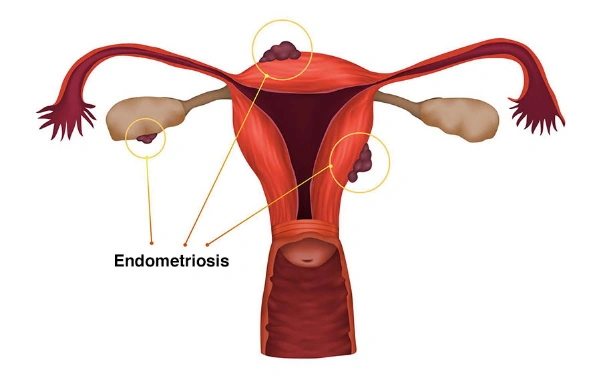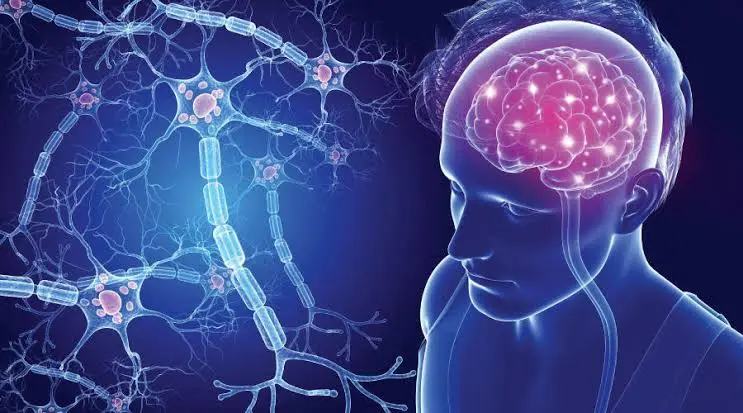Endometriosis genes

If you tested your DNA with a personal genomics service like 23andMe, AncestryDNA, FamilyTreeDNA, MyHeritage or another testing company, you can learn more about your risk factors for hundreds of diseases. By clicking the button above ⬆️, you can upload your raw DNA data file and receive a personalized 250-page health report with research links that is the most comprehensive.
Endometriosis is a prevalent condition where endometrial tissue grows outside the uterus, leading to various problems such as pelvic pain, dysmenorrhea and infertility. The exact prevalence of this disease remains uncertain; however estimates suggest that it affects 10% -15% of women in reproductive age and up to 25%-35% for those who are infertile. Endometriotic lesions may manifest at different sites including ovaries, uterosacral ligaments, retrovaginal septum or pelvic peritoneum resulting in variable histopathology changes . Creating an accurate diagnostic classification system has proved challenging due to its heterogeneity with stages ranging from mild-moderate-severe based on size,number and depth of these variation which do not always correspond well with symptom severity (pain/infertility). Current treatment involves either surgical resection or hormone-based therapies like progestogens,Danocrine,gonadotropin-releasing hormone (GNRH) agonists.
Several genes, such as FSTL5, ZNF366, HLA-G, TBL2, FOXP2, SNX16 MPDZ,PAPPA and KCTD12 are found in close proximity to these informative SNPs. Additional research is required to elucidate the relationships between them and identify which significant genes play a role in endometriosis' pathogenesis.
One study has identified a potential connection between the development of endometriosis and a gene named vezatin (VEZT). VEZT performs various functions in the body, including facilitating successful implantation of fertilized eggs into the uterus. The research discovered that this particular gene is more active in endometrial lesions than it is in healthy endometrium. Furthermore, certain GWAS studies have shown evidence for specific mutations within this gene leading to heightened activity observed among patients with endometriosis. In order to pinpoint genetic variants in the identified linkage regions, researchers have conducted "fine mapping" studies. One such study involved extensive genotyping of the chromosome 10q26 linkage region using 11,984 single nucleotide polymorphisms (SNPs) in 1144 familial cases and 1190 controls (Figure 1). This study revealed three independent signals that were significantly associated with endometriosis: rs11592737 at 96.59 Mb, rs1253130 at 105.63 Mb, and rs2250804 at 124.25 Mb [28]. However, only rs11592737 was reliably replicated (p = 0.04) in a separate cohort of 2079 cases and 7069 controls. This particular variant is located in the CYP2C19 gene, which is a promising candidate gene for endometriosis due to its involvement in drug and estrogen metabolism, including the conversion of E2 to estrone (E1) [29]. While this association does not fully explain the observed linkage signal on chromosome 10q26, further studies are necessary to identify rare genetic variants in this region through resequencing methods. Additionally, functional studies are needed to determine the effects of these variants on underlying biological pathways and identify the genes involved.
Follow the link of the selected polymorphism to read a brief description of how the selected polymorphism affects Endometriosis and see a list of existing studies.
SNP polymorphisms related to the topic Endometriosis:
| rs2235529 | WNT4 polymorphism is associated with endometriosis in infertile patients. |
| rs10859871 | The vesatin gene breakage is the locus with the strongest evidence of association with endometriosis. |
| rs13394619 | The GREB1 genetic variant is a novel risk locus for endometriosis. |
| rs16826658 | Polymorphisms that increase the risk of endometriosis. |
| rs1537377 | Polymorphisms associated with infertility risk and endometriosis. |
| rs7739264 | Polymorphisms associated with infertility risk and endometriosis. |
| rs12700667 | Increased risk of ovarian endometriosis disease. |
| rs7521902 | Genetic variant underlying the risk of endometriosis. |
| rs9340799 | Estrogen receptor polymorphism increases the risk of endometrial cancer and endometriosis. |
| rs10965235 | A major genetic variant in CDKN2B underlying endometriosis risk. |
| rs6907340 | |
| rs801112 | |
| rs12449465 | |
| rs7816936 | |
| rs11193561 | |
| rs10508881 | |
| rs10431397 | |
About The Author
Li DaliLi Dali, a National Foundation for Outstanding Youth Fund recipient, is a researcher at the School of Life Sciences in East China Normal University. He earned his PhD in genetics from Hunan Normal University in 2007 and conducted collaborative research at Texas A&M University during his doctoral studies. Li Dali and his team have optimized and innovated gene editing technology, leading to the establishment of a world-class system for constructing gene editing disease models.


